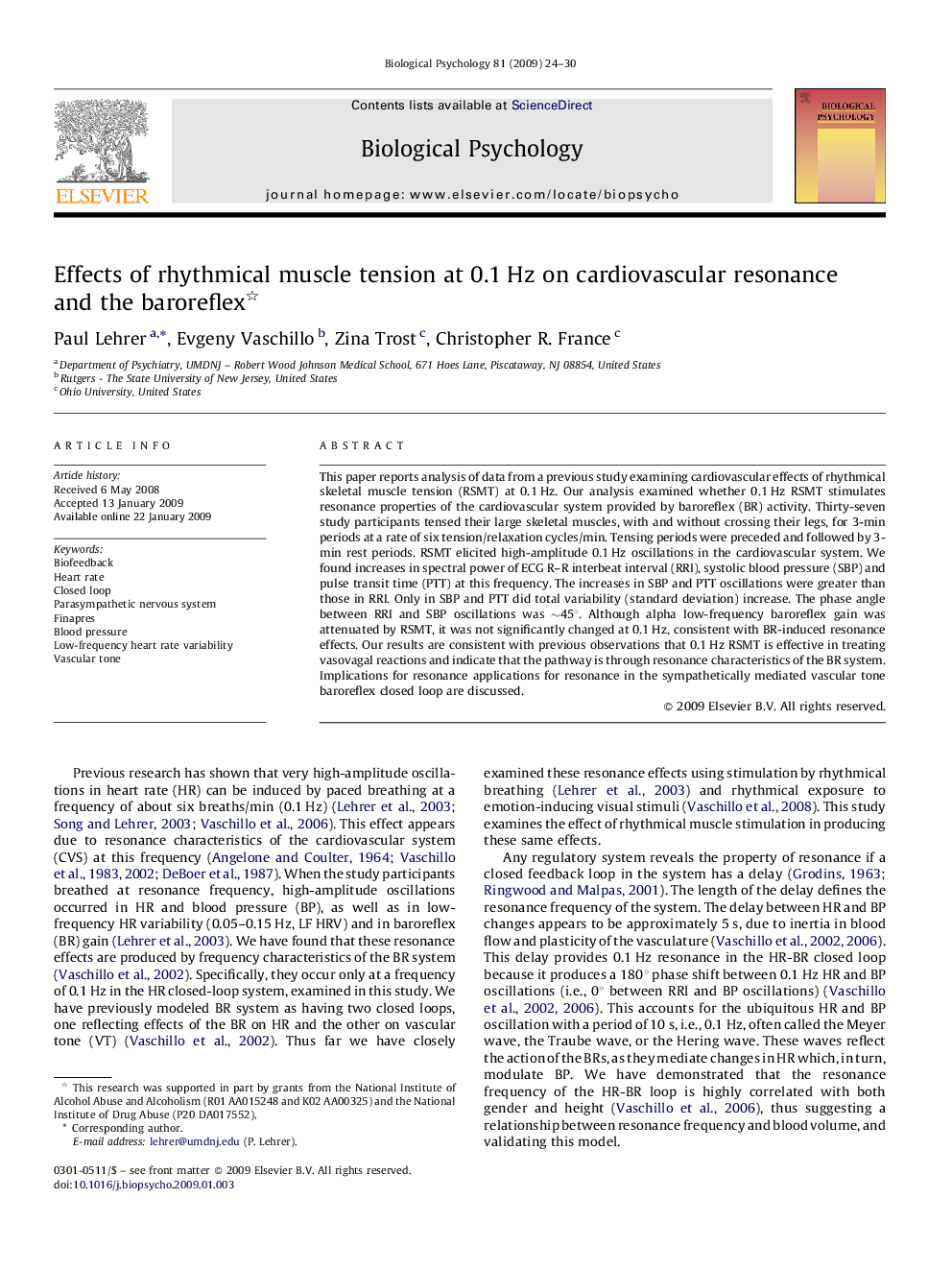| Article ID | Journal | Published Year | Pages | File Type |
|---|---|---|---|---|
| 921398 | Biological Psychology | 2009 | 7 Pages |
Abstract
This paper reports analysis of data from a previous study examining cardiovascular effects of rhythmical skeletal muscle tension (RSMT) at 0.1 Hz. Our analysis examined whether 0.1 Hz RSMT stimulates resonance properties of the cardiovascular system provided by baroreflex (BR) activity. Thirty-seven study participants tensed their large skeletal muscles, with and without crossing their legs, for 3-min periods at a rate of six tension/relaxation cycles/min. Tensing periods were preceded and followed by 3-min rest periods. RSMT elicited high-amplitude 0.1 Hz oscillations in the cardiovascular system. We found increases in spectral power of ECG R-R interbeat interval (RRI), systolic blood pressure (SBP) and pulse transit time (PTT) at this frequency. The increases in SBP and PTT oscillations were greater than those in RRI. Only in SBP and PTT did total variability (standard deviation) increase. The phase angle between RRI and SBP oscillations was â¼45°. Although alpha low-frequency baroreflex gain was attenuated by RSMT, it was not significantly changed at 0.1 Hz, consistent with BR-induced resonance effects. Our results are consistent with previous observations that 0.1 Hz RSMT is effective in treating vasovagal reactions and indicate that the pathway is through resonance characteristics of the BR system. Implications for resonance applications for resonance in the sympathetically mediated vascular tone baroreflex closed loop are discussed.
Keywords
Related Topics
Life Sciences
Neuroscience
Behavioral Neuroscience
Authors
Paul Lehrer, Evgeny Vaschillo, Zina Trost, Christopher R. France,
